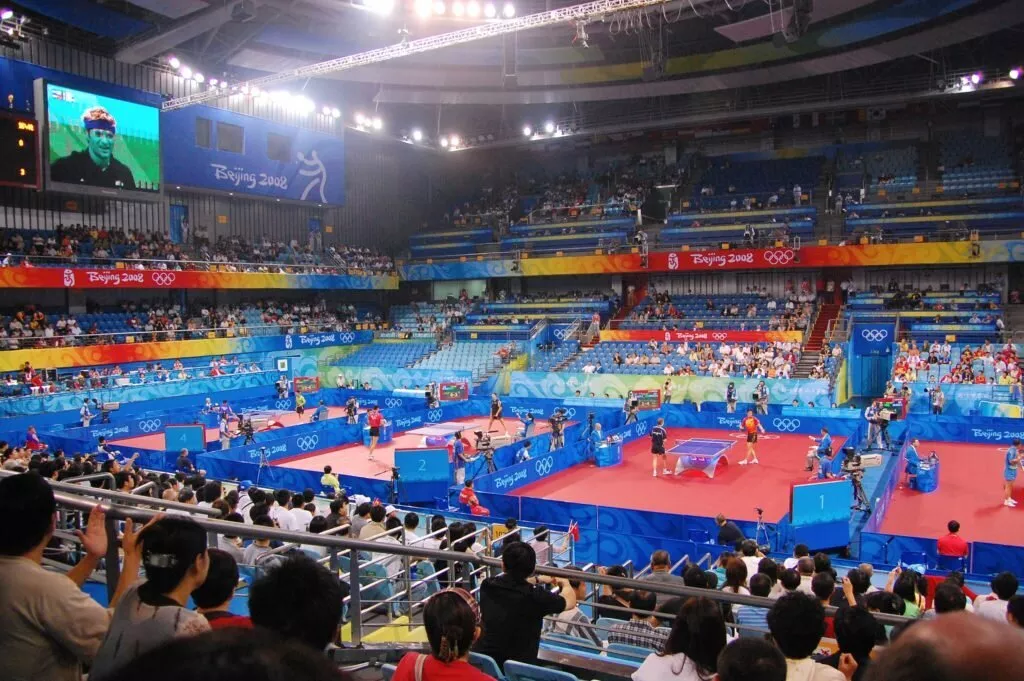Beijing 2008–An economic success but socio-political failure

(Courtesy : scmp)
In this series, we’ve taken you to two cities that have seen unparalleled breakdown due to hosting the Olympics. Here’s one that benefited massively.
"I expected to have more freedom for my journalistic activities, which were strictly controlled and regulated by the government. But during the Olympics, the authorities allowed us to report freely. We were all very excited," said John Erling.
Sportsmen expect better facilities, the fraternity contemplates a better sporting culture, but for Beijing 2008, there was optimism and hope for loosening the leash. The nation hoped it would be the first step towards liberalization and (a little far-fetched but yes) democratization. Those words come from John Erling, a China correspondent for Die Welt German newspaper.
The hope wasn’t unprecedented. The 1964 and 1988 Olympics effectuated a series of political and social changes in Japan and South Korea, and hope had made its way.
Politically and socially, things took an ugly turn to become harsher since the 2008 Olympics. Journalistic freedom has gone for a toss, witnessed and complained upon by the world on several occasions. The Uyghur concentration camps and the delayed information behind COVID-19 virus are prime and contemporary examples of how handicapped the media in the country is.
2008 in China will be remembered for the Olympics and other reasons too. The Tibetan unrest and the subsequent government crackdown on protesters shaped the future course for China, transforming its image and relationship with the rest of the world.

"Before 2008, 'connecting with the world' was a catchphrase in China. After 2008, it disappeared from state media. The new message was: now the world should follow us," says Chang Ping, one of China's best-known political commentators.
Socially or politically, the Olympics may have not transformed the country, but it succoured its economy post 2008. Seven cities hosted the sixteen-day event inside 37 arenas, mostly newly built or newly furbished. Beijing, the focal point of the ‘One World, One Dream’ 2008 Olympics, underwent a massive transformation. China invested nearly $40 billion in infrastructure alone from 2002 to 2006 in a well-planned effort and made national stars out of PRC Olympic champions such as Liu Xiang and Guo Jingjing.
The Dragon nation built the Olympic Park and 37 stadiums & venues to host Olympic events. The plan included the establishment of 32 buildings in Beijing alone, 19 new and 13 refurbished. Five other cities were earmarked for venues - a sailing centre in Qingdao and soccer stadiums in Tianjin, Qinhuangdao, Shenyang, and Shanghai.
Safe to say, China’s rise to global echelons was helped by such inventive planning and implementation. The root of growth of the Chinese Super League – gradually growing into one of the top leagues in Asia – lies in 2008.
Beijing spent in the region of $1 billion on transportation improvements alone, completing the city’s rail system and constructing and revamping over 318 km streets—including 23 roads in and around the Olympics sites. The government also refurbished 25 historic areas, including several landmarks, old streets, and beautiful, four-corner residences that dated from the imperial period.
Prior to the Olympics, which were a massive success, China suffered from an inferiority complex. After its completion, it gained towering self-confidence. Its economic prance was a global spectacle in a way unforeseen before. China's GDP was smaller than Germany's in 2007. By 2017, China's $12.2 trillion-economy became larger than those of Germany, UK, France and Italy combined.
The nation is reaping rich dividends by constantly using its infrastructure and policies it promulgated before the mega event. Since China entered the WTO and won its Olympic bid, the country has reduced hotel ownership restrictions. Starting in 2002, China allowed foreign investment in stake-holding in hotels. This took a step up in 2006, when wholly foreign-owned hotels were permitted. These moves cleared the way for an extensive expansion of foreign-owned hotels and other tourism facilities, and the nation still benefits from the same.
China spent $40 billion preparing the nation for the Olympics, and has since spiralled into becoming one of the top manufacturing, IT and supply nations in the world. Its supply chain is deeply rooted in the global network and China has slowly but truly become the ‘reliable producer and supplier’ of mass products globally – a trend that has made it one of the fastest-growing countries in the world.
Given its budget, Beijing had few rivals for hosting the Winter Olympics 2022. The event could now see deferment given the Coronavirus situation globally, but the financial might and sound planning of the nation may well benefit from it. If the Winter Olympics have a spiral effect like 2008, China might challenge the US or even upscale its economy in years to come.
For global balance, it could be devastating for a controlling monarchy such as the Middle Kingdom to enjoy such political, social and economic power and vantage.
Where passion meets insight — blending breaking news, in-depth strategic analysis, viral moments, and jaw-dropping plays into powerful sports content designed to entertain, inform, and keep you connected to your favorite teams and athletes. Expect daily updates, expert commentary and coverage that never leaves a fan behind.